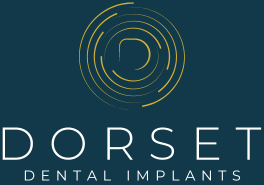It is quite rare that we come across a patient that cannot have implants.
After dental implants are placed into your jawbone, a predictable healing process takes place which involves the body growing onto the surface of the implant and fusing with it.
Also, the gum tissue over the implants also has to heal as part of the overall healing process, but again this is a very predictable normal process.
So when it comes to the question of who cannot have implants, it really comes down to anyone where the above healing process would not take place as normal.
The leading group of people where this would be the case would be people who are being treated with a group of drugs known as bisphosphonates eg. alendronic acid.
Even more specifically where these drugs are being administered intravenously on a regular basis. This is most commonly in patients being treated for cancer of certain types.
The high levels of the medication in the body affect how the body’s normal bone healing functions, including how it heals after a tooth extraction or dental implant placement. Therefore we would advise that those individuals on intravenous bisphosphonates do not have dental implants.
We very often see patients who have been previously told they cannot have dental implants as ‘they don’t have enough bone’. We would say that almost exclusively this not to be the case, as either the patient has not been assessed by an appropriate clinician or has not had the correct assessment carried out.
We very often use a Cone Beam CT scanner at our practice to fully assess the volume of bone available to place implants. In addition, we have a number of techniques to predictably get the body to grow new bone around the implants to be placed. It is therefore very rare that we see a patient that cannot have implants. Some very rare bone diseases would also preclude a patient from having implants, but we are yet to see a patient with one of those conditions.
Another situation where the bone healing process would be disturbed would be when a patient previously had radiotherapy to the head, neck or throat in certain areas. The x-rays used as part of the radiotherapy to treat the previous tumour can reduce the bone in that area’s ability to heal correctly. In that situation, dental implant placement would be contraindicated.
There are also some further situations where implants cannot be placed, and this would be more of a simple case of lack of access to more difficult areas of the mouth, usually towards the back of the mouth.
Some people have a very limited ability to open their mouth wide enough for a variety of reasons, and we simply cannot get our delicate instruments in safely to place the implant in a predictable way.
Once again, this is a very rare occurrence, and as a guide, if you are able to have a filling carried out at the dentist, you are able to have a dental implant placed from an access point of view.
What next?
For more information please click here to email the practice to make an appointment or call 01202 973300.
